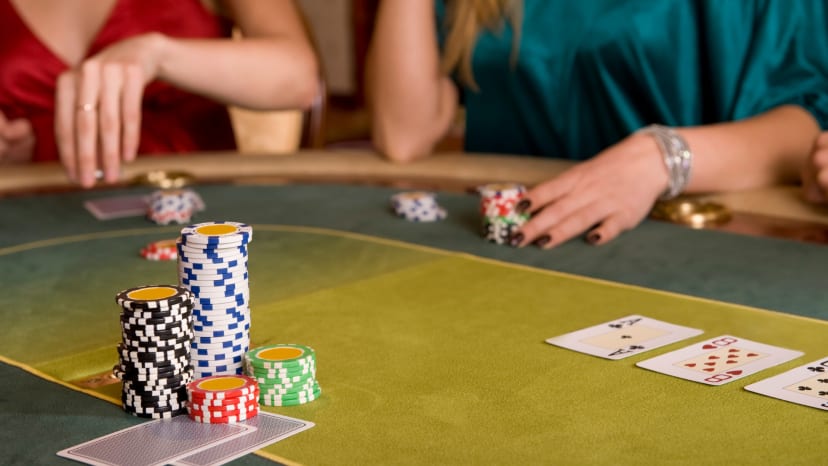Caribbean Stud Poker is a ripper of a casino game, no matter where in New Zealand you're playing. Over the last few years, this classic has become a massive hit as a real-money online casino game, with heaps of different versions available.
What draws Kiwi players to this online poker game is that it's not as fiddly as other poker variants. It still has its own unique quirks, though, which really make the game stand out from the pack.
However, its simplicity can sometimes lead to a few costly slip-ups. To give you a better shot at taking down the pot in Caribbean Stud Poker, we'll go over some of the classic blunders players make right here.
The Most Common Mistake to Avoid in Caribbean Stud Poker
A pretty common pitfall for players is completely ignoring the dealer's up card in Caribbean Stud Poker. When you're in the thick of it, you've got to suss out what the opponent's showing. This card is your golden ticket when deciding whether to push your luck or fold 'em in apoker game.
- You should definitely bet more if you've got a pair and the dealer's up card is anything from a 2 through to a Queen.
- If the dealer's chances of hitting a pair look slim, your odds of winning improve. This handy rule doesn't apply, however, if the dealer's up card is an Ace or a King and you don't have a matching card in your hand.
- Remember, the dealer usually has a paired hand, which naturally puts the player's winning chances under pressure.
- Knowing when to go to continue and when to back down is an essential part of any poker game. If a player has a pair or better, they should always keep on betting, and if they don't, they should fold unless they have an ace high or higher.
Bonus Bets in Caribbean Stud Poker
A bonus bet is a well-known option in many Caribbean Stud Poker versions. While it's easy to see the appeal of such bets, they should generally be avoided. Despite the high payouts, the casino has a significant edge over the player, meaning that it's often more just a way of enticing players to spend more money.
If players choose to go ahead with this type of bets, they should be aware that the separate bet is added to their main bet. This implies that they can win the bonus bet even if they lose their main bet. However, it's important to remember that the bonus bet carries a high risk, and players probably won't win it very frequently.
The bonus bet is not required in Caribbean Stud Poker to improve the players' chances of winning. Instead, players should focus on the main game and use simple strategies to increase their earnings.
How to Deal with Caribbean Studs
Because Caribbean Stud Poker is a casino game, there is no sure-fire way always to win. However, using the right Caribbean Stud Poker tips and strategies, players can raise their winning odds while lowering their risks.
One of the most critical aspects of Caribbean Stud Poker is the player's bankroll management. Even when things are going well, setting and adhering to a wagering cap is essential. It's crucial also to stay calm and not try to win back losses by betting more.
How Not to Lose Track
Choosing the best starting cards requires expert knowledge. While playing every hand is enticing, it's important to remember that some hands have a better chance of winning than others. Any starting hand that isn't at least an Ace high is usually better off folding while waiting for a stronger one.
Players must pay close attention to one another. Players' activities may affect outcomes, even though this isn't a competition. So, if several players at the table fold, the dealer might have a great hand. If multiple players keep betting, it could mean that the dealer has a poor hand.
Conclusion
Caribbean Stud Poker offers enjoyment, but remember that wins aren't a guaranteed factor. By staying true to the core principles and avoiding common mistakes, players can improve their chances of winning more often in the long run.
By closely observing the dealer's up card, choosing strong starting hands, keeping track of their money, and learning the basic strategies, players can increase their odds of winning at Caribbean Stud Poker. It's also a good idea to avoid bonus bets because they usually have a large house edge and offer hardly any chances of winning.
Plus, the outcome of a Caribbean Stud Poker game is heavily influenced by chance. Players do have a lot higher chances of winning and having an overall enjoyable gaming experience if they follow these Caribbean Stud Poker tips and avoid common mistakes.
It's worth becoming acquainted with the rules and strategies of Caribbean Stud Poker since it's part of the broad poker spectrum - one of the industry's most popular and respected poker games.
FAQ
What are the most common mistakes to avoid in Caribbean Stud Poker?
The most common mistake in Caribbean Stud Poker is not fully understanding the rules. While the game is relatively straightforward, a solid grasp of the rules and basic strategy is essential for Kiwi players. Practice in demo mode to learn the ropes and avoid costly errors when playing for real money.
Are bonus bets a good idea in Caribbean Stud Poker?
Bonus bets in Caribbean Stud Poker can be tempting due to their potentially high payouts, but they come with a significantly higher house edge. For New Zealand players, it's generally advisable to avoid these bets. While the allure of a big win is strong, the odds are stacked against you, making them a risky proposition.
What's the best approach to playing Caribbean Stud Poker?
Caribbean Stud is a game that combines luck and skill. For Kiwi players, the best approach is to learn optimal strategies and practice sound bankroll management. By understanding the odds and managing your funds wisely, you can minimize risks and increase your chances of a positive outcome. Remember to gamble responsibly.













